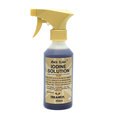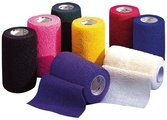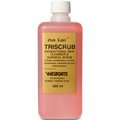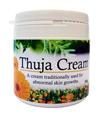In light of the recent Equine Herpes Virus (EHV) 1 outbreaks in the UK we have put together a list of steps to help protect your own and other horses from the virus. If your yard is free from disease then it should not stop you going out competing or to events, but be extra vigiliant with biosecurity.
What is EHV?
Equine Herpes Virus is ubiquitous within the equine population and commonly causes respiratory disease in youngstock. Once infected the virus can stay latent within the horse and re-emerge at times of stress etc (like cold sores in people). EHV-1 and 4 are the most common types. EHV-1 causes respiratory disease and also occasionally neurological disease and abortions. EHV-4 generally causes mild respiratory disease. Pregnant mares are routinely vaccinated to reduce the risk of abortion.
Out and About:
EHV is spread in the most part by direct contact (ie nose to nose) or indirect contact (via shared water troughs, on people etc). It can be spread through the air although only at relatively close distances (unlike equine flu which can travel much longer distances) so by keeping you and your horse to yourselves you are significantly reducing the risk of infection.
- Do not share water buckets or troughs.
- Do not graze your horse at shows (your horse could come into contact with a contaminated area of grass where another horse has been grazing)
- Avoid your horse having nose to nose contact with other horses.
- EHV can be spread indirectly on humans hands or clothes so avoid touching other horses and use appropriate hand hygiene measures.
- Do not share any tack, rugs or equipment.
At Home:
- Take your horse's temperature at least once daily. Above 38.5 degrees C is considered a higher than normal temperature (pyrexia). If your horse has a temperature you should isolate your horse and have your vet take a look. Note - there are other infections that can also cause pyrexia so this doesn't necessarily mean your horse has EHV but your vet will be able to send off samples to help determine the cause.
- Monitor your horse for clinical signs of EHV: cough, nasal discharge, reduced appetite, swellings, incoordination or ataxia (wobbliness).
- Do not move seemingly healthy horses off premises where EHV has been diagnosed. They could be carrying or incubating the infection.
- Avoid sharing water or feed buckets, tack, rugs or other equipment between horses.
- Separate pregnant mares from the other horses. EHV can also cause abortion.
Vaccination:
Vaccination still does not offer complete protection against EHV but you could discuss this with your vet as it may still be useful in reducing the impact of infection if you are in an 'at risk' area.
If you are at all concerned about the health of your horse, contact your vet immediately.
If you have any questions or comments, feel free to post them here or email us directly: [email protected]
Written by: Dr. Sophie Meers BVSc MRCVS









